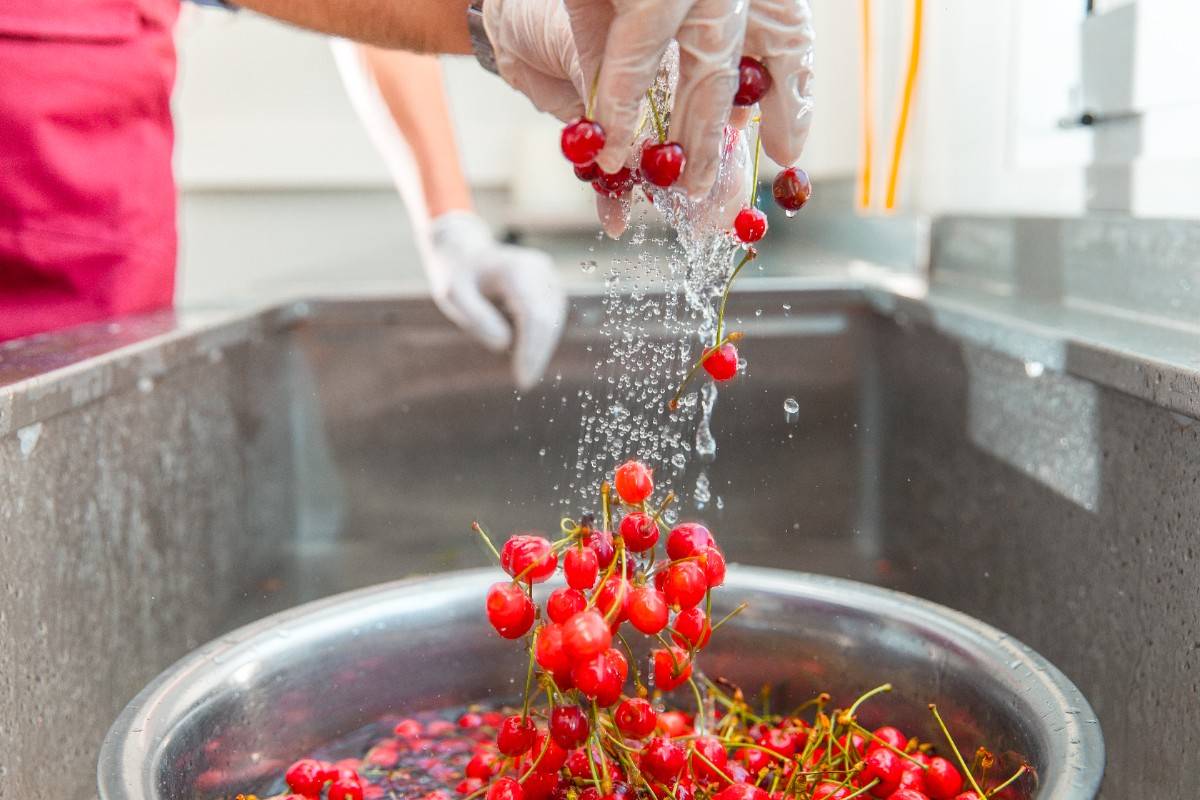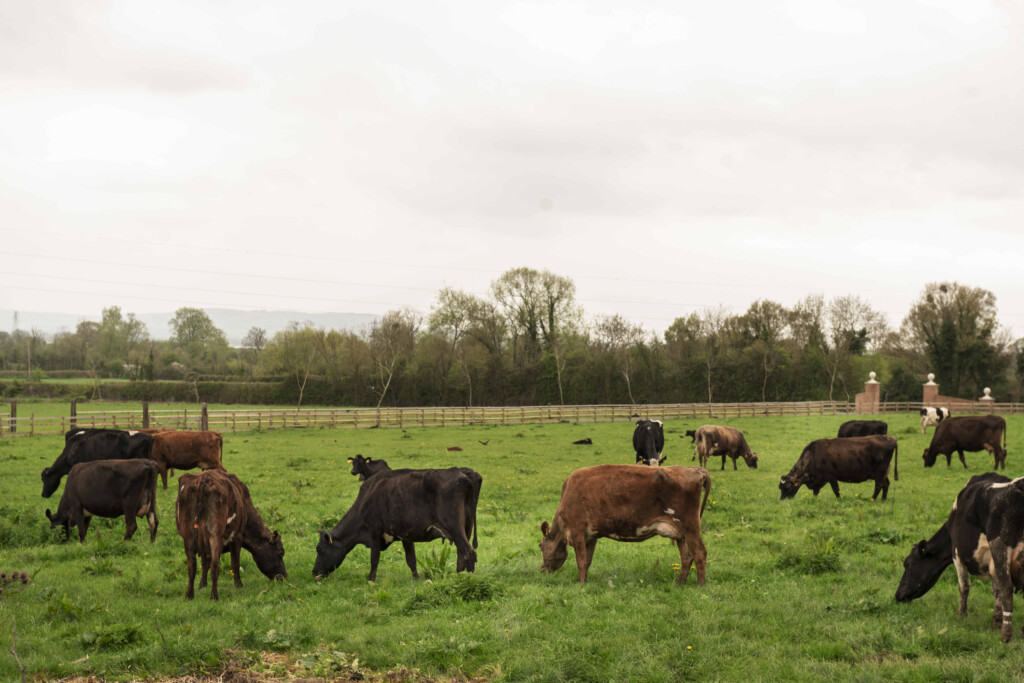Standing in the produce aisle, you’re faced with a choice: a conventional apple on one side, and its more expensive organic cousin on the other. You wonder, “Is there really a difference? What am I actually paying for?” It’s a question many of us have asked.
The organic label has become increasingly common on grocery store shelves, but understanding what it truly means and whether it’s worth the extra cost can feel overwhelming. With so much conflicting information out there, it’s natural to wonder if organic farming offers genuine benefits or if it’s just clever marketing.
The truth is, organic farming represents a fundamentally different approach to agriculture, one that prioritizes soil health, environmental sustainability, and reduced chemical inputs. While the debate around organic versus conventional farming continues, mounting research suggests that organic practices offer measurable benefits for both human health and environmental protection.
What Does “Organic Farming” Actually Mean?
Before diving into the benefits, it’s important to understand what organic farming actually entails. According to the USDA, organic agriculture is a production system that avoids or largely excludes synthetic fertilizers, pesticides, growth regulators, and livestock feed additives.
Organic farmers focus on building healthy soil through practices like crop rotation, composting, and cover cropping. They rely on natural pest control methods and avoid genetically modified organisms (GMOs). For livestock, organic standards require access to outdoor areas, organic feed, and prohibit the routine use of antibiotics and growth hormones.
Some people question if the “organic” label is just marketing. That’s a valid concern, but the USDA organic certification has strict government-regulated standards that farmers must follow, from soil conditions to pest control methods. Products must contain at least 95% organic ingredients to carry the official organic seal.
Benefit 1: It Drastically Reduces Your Exposure to Pesticides
One of the most compelling reasons people choose organic food is to reduce pesticide exposure. Conventional farming relies heavily on synthetic pesticides to control weeds, insects, and diseases. While these chemicals are regulated, concerns about their long-term health effects persist.

Research consistently shows that organic foods contain significantly lower pesticide residues than conventional alternatives. A comprehensive analysis published in the British Journal of Nutrition found that organic crops had four times lower pesticide residues compared to conventional crops.
The Environmental Working Group (EWG) annually publishes its “Dirty Dozen” list, highlighting produce with the highest pesticide residues. Items like strawberries, spinach, and apples consistently rank high, making them prime candidates for choosing organic when possible.
While the health implications of low-level pesticide exposure are still being studied, reducing exposure especially for pregnant women and children is considered a precautionary approach by many health experts.
Benefit 2: It Builds Healthier, More Resilient Soil
Soil health is the foundation of sustainable agriculture, and organic farming excels in this area. Conventional farming often depletes soil through intensive tillage, synthetic fertilizers, and monoculture practices. Organic farming, in contrast, treats soil as a living ecosystem that needs to be nourished and protected.

Organic farmers use techniques like crop rotation, cover cropping, and composting to build soil organic matter. These practices increase the soil’s ability to retain water, store carbon, and support beneficial microorganisms. Research from the Rodale Institute’s long-term farming systems trial shows that organic soils contain 15-28% more organic matter than conventional soils.
Healthy soil doesn’t just benefit farmers it creates a foundation for more nutritious crops and helps sequester carbon from the atmosphere. These practices are part of a larger movement towards regenerative agriculture
The improved soil structure in organic systems also enhances water infiltration and reduces erosion, creating long-term agricultural sustainability that benefits entire watersheds.
Benefit 3: It Supports Biodiversity and Protects Pollinators
Organic farms consistently support higher levels of biodiversity compared to conventional operations. This includes everything from soil microorganisms to birds, beneficial insects, and wild plants that grow around farm edges.
A major factor in this biodiversity boost is the absence of synthetic pesticides, which can harm non-target species. Neonicotinoid pesticides, commonly used in conventional farming, have been linked to bee colony collapse and declining pollinator populations.

Studies show that organic farms have 30% more species richness on average than conventional farms. This includes important pollinators like bees, butterflies, and birds that are essential for both crop production and ecosystem health.
The presence of diverse plant species on organic farms also creates habitat corridors that support wildlife movement and reproduction. Wild flowering plants along field edges provide nectar sources for pollinators throughout the growing season.
This biodiversity creates natural pest control systems, where beneficial insects help keep harmful pests in check without relying on chemical interventions.
Benefit 4: It Often Contains Higher Levels of Certain Nutrients
The nutritional debate around organic versus conventional food is complex, but research suggests organic produce may offer higher levels of certain nutrients. A large meta-analysis published in the British Journal of Nutrition found that organic crops contained significantly higher concentrations of antioxidants.
Specifically, organic fruits and vegetables showed 17% higher antioxidant content, including flavonoids and phenolic compounds that may help reduce inflammation and disease risk. The study also found that organic crops had 48% lower levels of cadmium, a toxic heavy metal.
Many people swear that organic produce, like a locally grown organic tomato, has a richer, more “real” flavor. While taste is subjective, it often comes down to healthier soil and plants that grow at a natural pace, potentially concentrating more nutrients and flavor compounds.
The slower growth rates in organic systems may contribute to higher nutrient density, as plants have more time to develop complex compounds rather than focusing primarily on rapid growth.
However, it’s important to note that nutritional content can vary widely based on factors like soil quality, climate, and storage methods, regardless of farming method.
Benefit 5: It’s Better for Water Quality
Water quality benefits represent one of the most significant environmental advantages of organic farming. Conventional agriculture is a major source of water pollution, with synthetic fertilizers and pesticides regularly detected in groundwater and surface water systems.
Nitrogen and phosphorus from synthetic fertilizers contribute to algae blooms and dead zones in waterways. The Gulf of Mexico dead zone, which can span thousands of square miles, is largely attributed to agricultural runoff from the Mississippi River watershed.
Organic farming practices significantly reduce these pollution sources. A long-term study by the USDA found that organic systems used 50% less energy and released 40% fewer greenhouse gas emissions per unit of production compared to conventional systems.
The improved soil structure in organic systems also increases water infiltration, reducing runoff and erosion that can carry pollutants into nearby water bodies. Cover crops and diverse plantings help filter water naturally as it moves through the landscape.
Communities downstream from organic farms often see measurable improvements in water quality, with lower levels of nitrates and pesticide residues in drinking water sources.
Benefit 6: It Promotes Animal Welfare
For consumers concerned about animal welfare, organic livestock standards offer significant improvements over conventional factory farming. Organic regulations require that animals have access to outdoor areas, fresh air, and sunlight.
Organic livestock must be fed 100% organic feed and cannot receive antibiotics, growth hormones, or other synthetic additives routinely used in conventional animal agriculture. This approach reduces the risk of antibiotic resistance, a growing public health concern.

The outdoor access requirements mean organic dairy cows, for example, must spend a minimum of 120 days per year on pasture, with at least 30% of their diet coming from grazing. This creates more natural living conditions and often results in healthier, less stressed animals.
Organic standards also prohibit many intensive confinement practices common in conventional animal agriculture, such as battery cages for hens or gestation crates for pigs.
While organic standards represent a significant improvement, consumers interested in the highest welfare standards might also look for additional certifications like Animal Welfare Approved or Certified Humane.
Benefit 7: It Helps Combat Climate Change
Organic farming’s role in climate change mitigation is increasingly recognized by scientists and policymakers. The carbon sequestration potential of organic soils represents a significant opportunity for agriculture to become part of the climate solution.
Research from the Rodale Institute suggests that widespread adoption of organic practices could sequester enough carbon to offset current global CO2 emissions. This happens because organic farming builds soil organic matter, which stores carbon that would otherwise be in the atmosphere.
Organic farms also tend to use less energy per unit of production, primarily because they don’t rely on energy-intensive synthetic fertilizer production. The manufacturing of nitrogen fertilizer alone accounts for about 1-2% of global energy consumption.
The reduced tillage and increased cover cropping common in organic systems also help prevent soil erosion and carbon loss. These practices create more resilient agricultural systems that can better withstand extreme weather events linked to climate change.
Additionally, the biodiversity supported by organic farms creates more resilient ecosystems that can adapt to changing climate conditions.
The Big Question: Is Organic Worth the Extra Cost?
The elephant in the room is price. Organic food typically costs 20-40% more than conventional alternatives, which can strain household budgets. Understanding why organic costs moreand whether it’s worth it—requires considering the true costs of food production.
Organic farming is often more labor-intensive, requires more complex management, and typically produces lower yields per acre. Farmers also invest time and money in organic certification and may face higher losses to pests and diseases without synthetic pesticides.
However, conventional farming’s lower prices don’t account for environmental and health costs that society bears through water treatment, healthcare, and environmental cleanup. When these “externalized” costs are considered, organic farming often proves more economical from a societal perspective.
For budget-conscious consumers, prioritizing organic purchases for items on the EWG’s Dirty Dozen list can maximize health benefits while controlling costs
How to Get Started with Organic Foods on a Budget

Making the switch to organic doesn’t have to break the bank. Here are practical strategies to incorporate more organic foods into your diet affordably:
Start with the Dirty Dozen: Focus your organic purchases on produce with the highest pesticide residues. Items like strawberries, spinach, and apples offer the biggest benefit from choosing organic.
Buy seasonal and local: Organic produce is often more affordable when it’s in season and grown locally. Visit farmers markets or join a Community Supported Agriculture (CSA) program for fresh, affordable organic options.
Consider frozen organic: Frozen organic fruits and vegetables are often less expensive than fresh and retain most of their nutritional value. They’re perfect for smoothies, cooking, and meal prep.
Buy in bulk: Organic grains, legumes, and nuts are often more affordable when purchased in bulk from health food stores or online retailers.
Grow your own: Even a small herb garden or container vegetables can provide organic produce at a fraction of store prices.
Shop smart: Compare prices across different stores, use coupons, and consider store brands for organic options. Many retailers now offer affordable organic house brands.
Conclusion: A Healthier Choice for You and the Planet
The benefits of organic farming extend far beyond individual health to encompass environmental protection, animal welfare, and climate resilience. While the science continues to evolve, the evidence suggests that organic agriculture offers a more sustainable approach to food production.
The choice between organic and conventional food is ultimately personal and depends on individual priorities, budget, and values. However, understanding the real benefits of organic farming from reduced pesticide exposure to improved soil health and biodiversity can help you make informed decisions that align with your goals.
As more consumers choose organic, they’re not just selecting healthier food options; they’re supporting agricultural practices that work with natural systems rather than against them. This collective choice helps drive positive change throughout the food system, encouraging more farmers to adopt sustainable practices and creating a healthier planet for future generations.
Whether you choose to go fully organic or simply incorporate more organic foods into your diet, every purchase is a vote for the kind of agriculture you want to support. In a world facing climate change, biodiversity loss, and health challenges, organic farming offers a path toward more sustainable and resilient food systems.
Design by freepik

